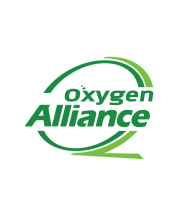Medical gas systems play a pivotal role in keeping healthcare facilities, a life-saving system. For the uninterrupted supply of these crucial gases to patients, a well-designed and appropriately functioning Medical Gas Pipeline System (MGPS) is mandatory (1). However, there are some risks associated with the faulty system that can lead to disruption of its function and cause danger to the lives of thousands of patients whose survival may depend on these life-saving gases. Apart from patient safety concerns, it can also lead to economic burdens and environmental hazards.
Some of these risk factors and ways to avoid them are given below:
- Poor designs:
Poor design can lead to faulty medical gas systems. Unfortunately, some of these design errors remain hidden even after construction. There can be multiple issues with the design, among which are discussed below:
- Lack of proper communication between designers and consumers can lead to recurring design errors. (2). Healthcare facility managers should give feedback to designers so that maintenance issues can be prevented by a carefully planned design of MGPS. Evidence-based design (EBD) has been recognized to improve design outputs (3).
- Limited supply resources can hinder the effective functioning of hospitals. For instance, considering the heavy flow of patients during a pandemic or an emergency, limited resources can contribute to worsening the situation (1). Enough room should be left for expansion during the design and installation stages, especially in critical care units.
- Outlet points are the final delivery points that provide these medical gases to patients. These outlet points should be color-coded correctly to avoid mistakes. Before using them, pipeline testing should be done, such as a cross-connection test and an initial press test (4).
- Operational errors:
Operating the MGPS without proper training or making mistakes can cause heavy losses, be they financial or casualty-related. These operational errors may occur due to improper training or carelessness. The operating staff may make mistakes in recognizing plate labeling or color coding and mix up gas outlets during patient management, which has been reported as well (5).
A study found human errors at multiple stages of the setup and repair of MGPS, which resulted in the near-death of the patient (6). Therefore, it is important to train the staff at all levels, including technicians, nurses, and doctors, to check these systems at their respective levels before starting with the intervention.
In order to avoid these operational errors, it is advisable for healthcare facility staff to go through the safety guidelines, such as Health Technical Memorandum 02-01 Part B, before delving into the handling of any of the parts of MGPS (7).
Conclusion:
Medical gas systems are crucial for making hospitals life-saving centers, and therefore, any error can put hundreds of lives in danger. These errors should be avoided during the design, installation, and operation stages. Therefore, it is advisable to carefully design it according to the needs of consumers, follow instructions vigorously during the installation stage, and properly train the operating staff to minimize the risk of errors.



